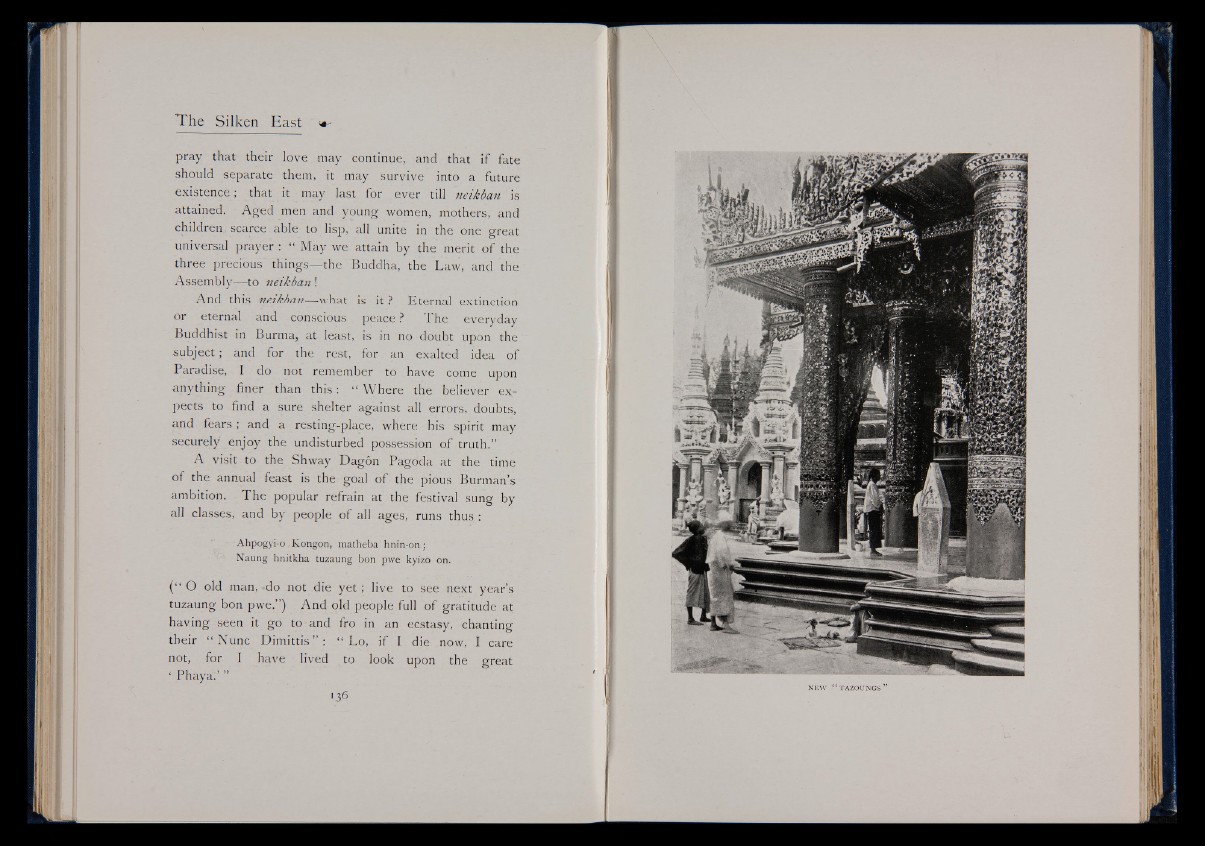
pray that their love may continue, and that if fate
should separate them, it may survive into a future
existence; that it may last for ever till neikban is
attained. Aged men and young women, mothers, and
children , scarce able to lisp, all unite in the one great O '
universal prayer : “ May we attain by the merit of the
three precious things— the Buddha, the Law, and the
Assembly— to neikban !
And this neikban— what is it ? Eternal extinction
or eternal and conscious peace ? The everyday
Buddhist in Burma, at least, is in no doubt upon the
subject; and for the rest, for an exalted idea of
Paradise, I do not remember to have come upon
anything finer than this: “ Where the believer expects
to find a sure shelter against all errors, doubts,
and fears ; and a resting-place, where his spirit may
securely enjoy the undisturbed possession of truth.”
A visit to the Shway Dagon Pagoda at the time
of the annual feast is the goal of the pious Burman’s
ambition. The popular refrain at the festival sung by
all classes, and by people of all ages, runs thus :
Ahpogyro Kongon, matheba hnin-on;
Naung hnitkha tuzaung bon pwe kyizo on.
(“ O old man,-do not die yet; live to see next year’s
tuzaung bon pwe.”) And old people full of gratitude at
having seen it go to and fro in an ecstasy, chanting
their “ Nunc Dimittis” : “ Lo, if I die now, I care
not, for I have lived to look upon the great
• Phaya/”
NEW ‘ £ TAZOUNGS ”